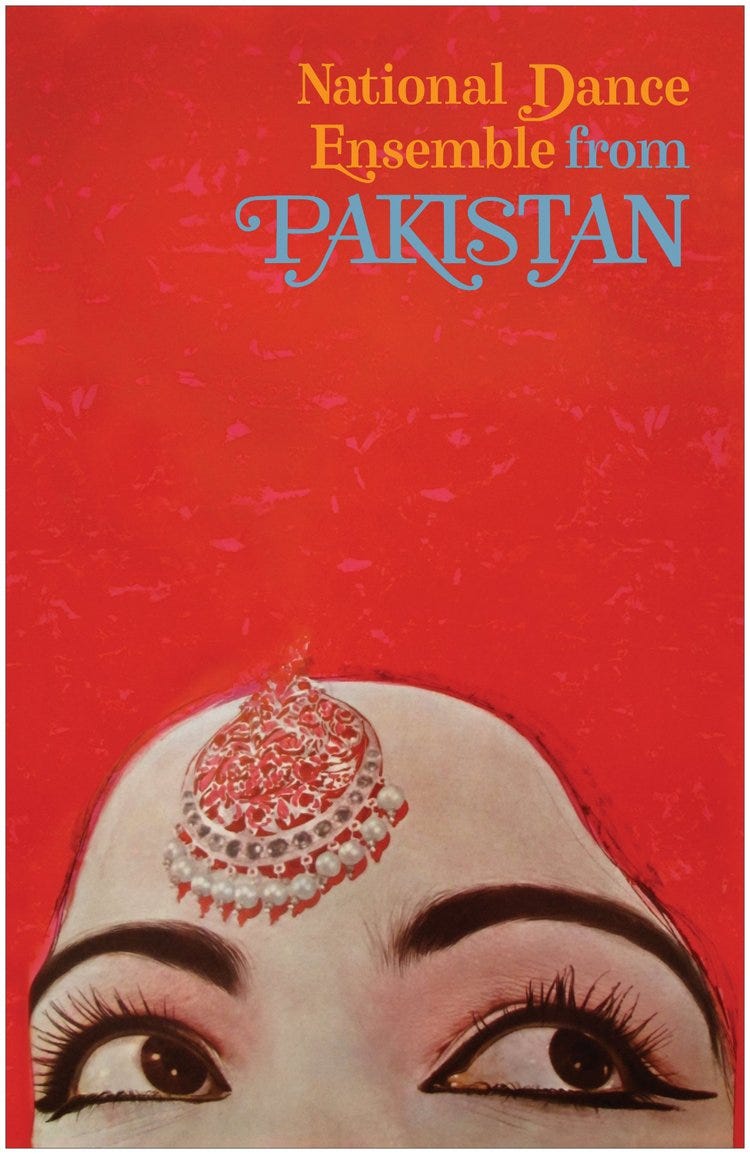Welcome to the Brown History Newsletter. If you’re enjoying this labour of love, please do consider becoming a paid subscriber. Your contribution would help pay the writers and illustrators and support this weekly publication. If you like to submit a writing piece, please send me a pitch by email at brownhistory1947@gmail.com.
Don’t forget to check out our SHOP and our Podcast.
How ‘Hum Dekhenge’ traveled from Pakistan to India as a Symbol of Resistance
Hum dekhenge, hum dekhenge,
We will see. We will see.
Lazim hai ke hum bhi dekhenge,
It is inevitable (that) we too shall see.
Hum dekhenge, hum dekhenge,
We will see. We will see.
American folksinger and political activist Pete Seeger said the right song at the right moment can change history.
In 1979, the late Faiz Ahmad Faiz penned the nazm (poem) Wa-yabqa-wajh-o-rabbik, taken from a Quranic verse from Surah Rahman meaning, “The face of your Lord”. However, it is more popularly recognized by its main phrase – Hum dekhenge (We will see).
Jab arz-e-Khudaa ke kaabe se
From the abode of God
Sab but uthwaaye jaayenge
When icons of falsehood will be taken out,
Hum ahl-e-safaa mardood-e-haram
We, the people who have been wronged
Masnad pe bithaaye jaayenge
Will be seated upon the throne
Faiz uses the historic event of the Prophet Mohammed's triumph in Mecca as a metaphor for political commentary. Following the victory of the Islamic Army, the Prophet entered the Kaaba, which is considered the first mosque constructed by Prophet Ibrahim. However, over time, the surroundings of the Kaaba became filled with idols, disregarding the teachings of Prophet Ibrahim. In an act of profound significance, the Prophet Mohammed removed the idols, proclaiming the words, "Truth has come and falsehood has vanished." This moment symbolizes the triumph of truth over falsehood, and it carries a profound message about the power of righteousness and the rejection of false idols.
In 1979, Pakistan was under the rule of General Zia-ul-Haq, a military dictator who had come to power following a coup in 1977. The country was in a state of political repression, with stringent censorship on the press and clampdowns on political dissent. The Zia-ul-Haq regime had a distinct agenda of Islamization, with the imposition of Sharia law and the promotion of conservative religious values. The Hudood Ordinances were introduced, which brought in Islamic punishments for specific crimes such as theft, adultery, and alcohol consumption. In addition to these measures, Zia-ul-Haq's government also took steps to promote Islamization in Pakistan's foreign policy. The regime strengthened ties with other Muslim countries, such as Saudi Arabia, and positioned Pakistan as a key player in the Islamic world.

Faiz Ahmed Faiz, a poet, writer and prominent Marxist, was openly critical of Zia-ul-Haq’s regime. Faiz, with a history in left-wing politics and an established portfolio of work on revolution, justice, and love, went into self-imposed exile in Beirut, Lebanon as a response to growing censorship and authoritarianism. It was while he was in exile that this nazm, one of his most powerful pieces, flowed from pen to paper, an ode to resistance across generations to come.
Wo din ke jis ka vaada hai,
The day that has been promised.
Jo lauh-e-azal mein likha hai, hum dekhenge
That is written in the book of destiny. We will see.
Faiz's poetry was seen as a particular threat to the regime's authoritarian control, with his work embodying a spirit of resistance and hope in the face of oppression. ‘Hum Dekhenge’ in particular was seen as a direct challenge to the regime's authority, with its lyrics celebrating the power of the people to rise up against injustice and oppression. It’s no surprise then that this nazm was promptly banned during the 1980s as part of a broader crackdown on free expression and dissent. In some ways, this only added to the rebellious nature of the song itself, a cult-like following growing slowly yet surely. All public performances of ‘Hum Dekhenge’ were banned, seen as a threat to national security and stability. Anyone caught defying the ban could face arrest, imprisonment, or worse. Despite this censorship, however, the poem continued to circulate in underground networks and through cassette tapes.
It was in 1985 though that ‘Hum Dekhenge’ gained revolutionary status.





